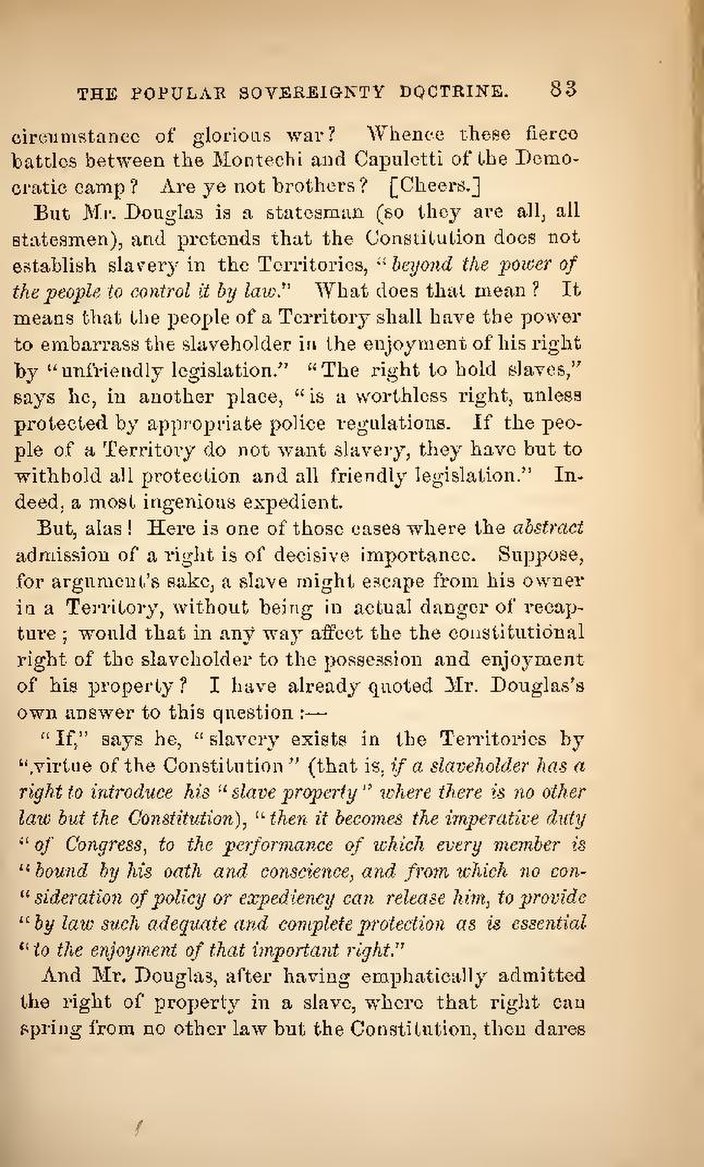circumstance of glorious war? Whence these fierce battles between the Montecchi and Capuletti of the Democratic camp? Are ye not brothers? [Cheers.]
But Mr. Douglas is a statesman (so they are all, all statesmen), and pretends that the Constitution does not establish slavery in the Territories, “beyond the power of the people to control it by law.” What does that mean? It means that the people of a Territory shall have the power to embarrass the slaveholder in the enjoyment of his right by “unfriendly legislation.” “The right to hold slaves,” says he, in another place, “is a worthless right, unless protected by appropriate police regulations. If the people of a Territory do not want slavery, they have but to withhold all protection and all friendly legislation.” Indeed, a most ingenious expedient.
But alas! Here is one of those cases where the abstract admission of a right is of decisive importance. Suppose, for argument's sake, a slave might escape from his owner in a Territory, without being in actual danger of recapture; would that in any way affect the constitutional right of the slaveholder to the possession and enjoyment of his property? I have already quoted Mr. Douglas's own answer to this question:—
“If,” says he, “slavery exists in the Territories by virtue of the Constitution” (that is, if a slaveholder has a right to introduce his “slave property” where there is no other law but the Constitution), “then it becomes the imperative duty of Congress, to the performance of which every member is bound by his oath and conscience, and from which no consideration of policy or expediency can release him, to provide by law such adequate and complete protection as is essential to the enjoyment of that important right.”
And Mr. Douglas, after having emphatically admitted the right of property in a slave, where that right can spring from no other law but the Constitution, then dares
